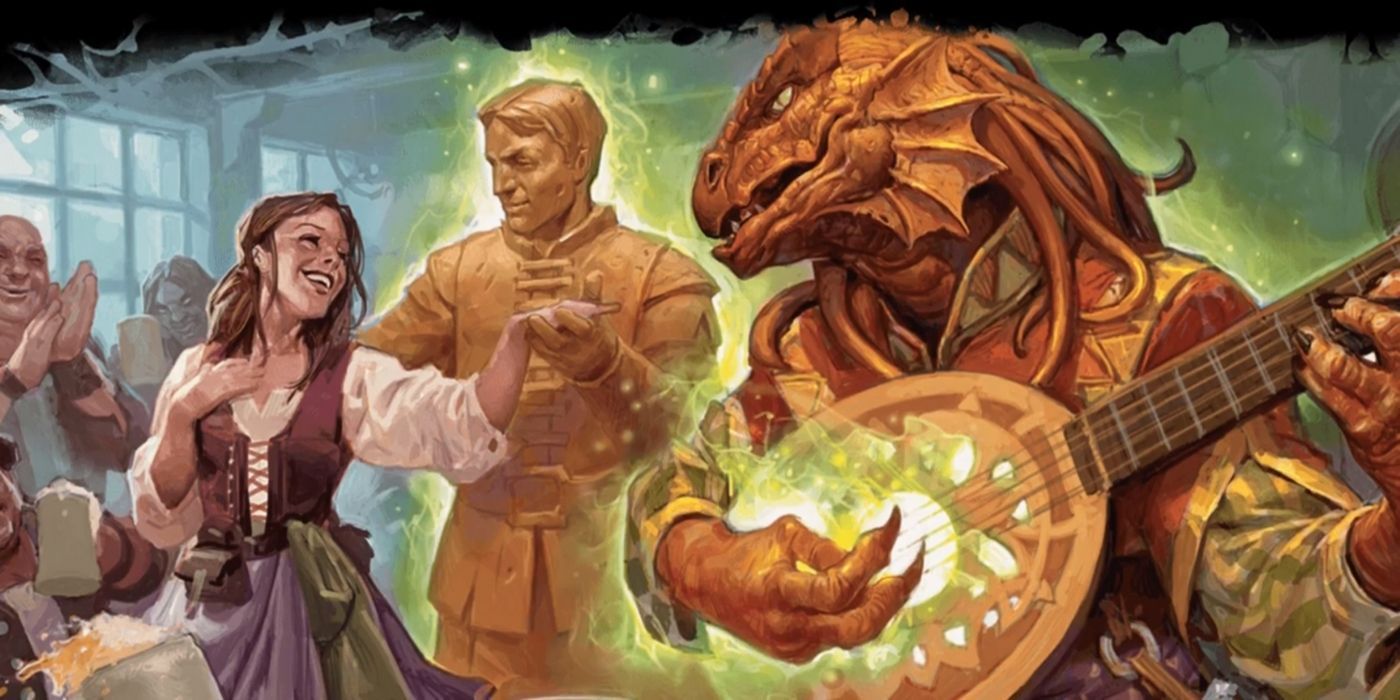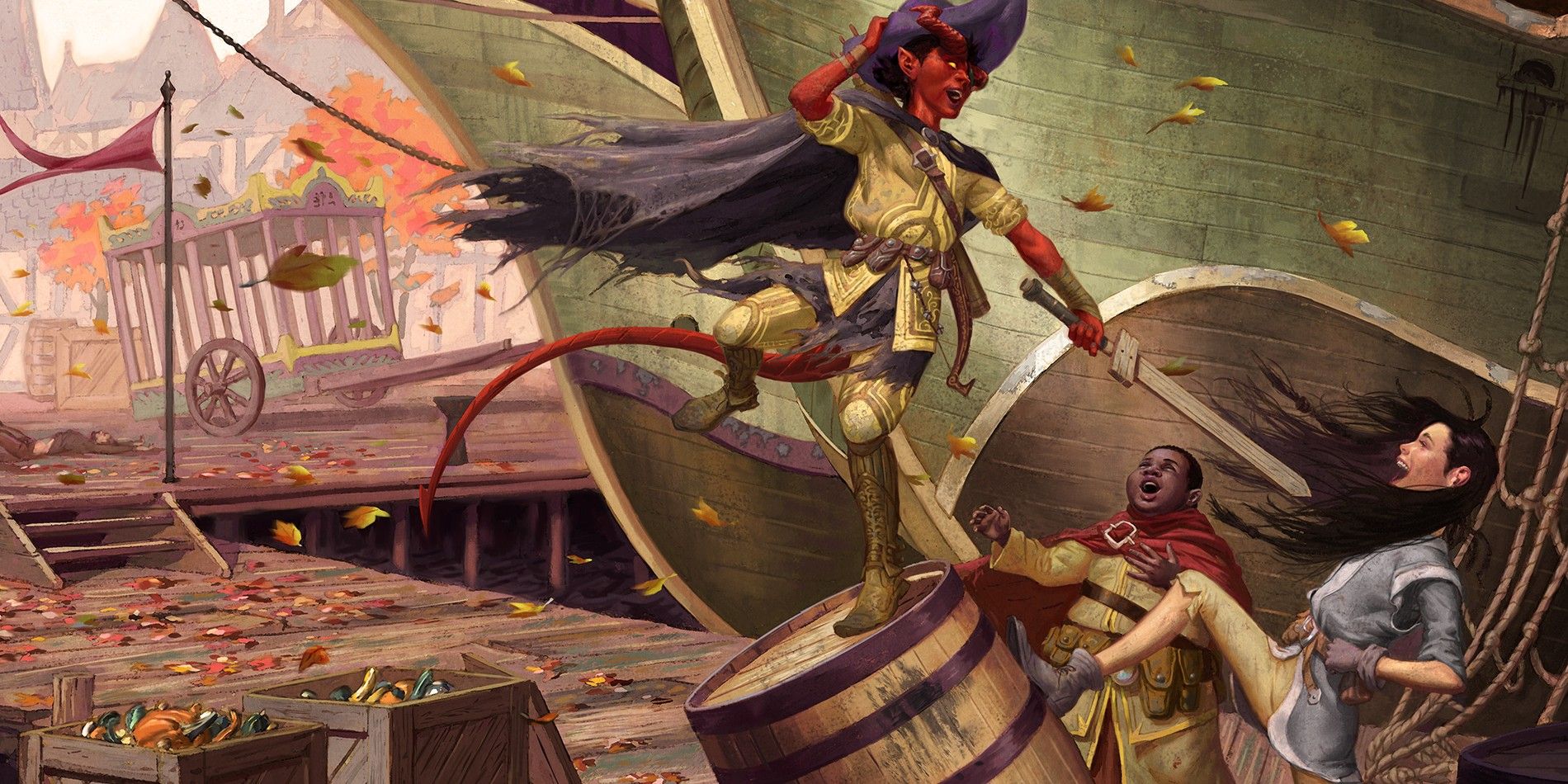

Every class in Dungeons & Dragons has certain strengths that may be appealing for a character build. Those wanting to land heavy damage in combat may be drawn to a Fighter or Barbarian, while others may choose to focus on the versatility of a Wizard or Sorcerer's magical talents. However, one of the more popular classes for a Dungeons & Dragons character build is the Bard. With the ability to buff other characters, learn a wide range of skills, and play epic ballads in taverns, a Bard can grow to fit almost any role.
Bards play an important role in most D&D parties. Thanks to their high Charisma, they have the ability to gather information, persuade a person into compliance, or put on a particularly believable performance. This can appeal to Dungeons & Dragons players who enjoy character roleplay, as it gives them the ability to engage with both NPCs and other party members. Negotiating with the king of a country, or seducing the villain that would otherwise need to be fought in combat, can provide an interesting and surprising interaction that is fun and engaging for the entire party.
Bards are also flexible. Thanks to D&D's Bardic Colleges, the player can truly shape their Bard into almost any kind of character. A Bard of the College of Eloquence could focus on skills of persuasion and trickery, while a Bard of the College of Blades can use their weapons both to entertain and do powerful damage in combat. This versatility allows players access to a number of skills from different classes without having to divide levels into multi-classing. It can also make many D&D Bards overpowered, which can be both entertaining for the party, and frustrating for the Dungeon Master.

Bards also have access to a well of magical abilities. Like Dungeons & Dragons' Wizards, Bards have both leveled spells and Cantrips. This includes Illusion spells like Disguise Self, Evocation spells like Healing Word, and Enchantment spells like Charm Person, among many other options. Players could choose to create a Bard who uses necromancy magic while strumming their guitar or focus on a Bard who creates illusions while singing to distract an audience. The use of combat magic can also be helpful for those who didn't choose a combat-proficient Bardic College, allowing Bard's to be useful during encounters as more than just buffers or healers.
Another reason the Bard class is popular is due to Dungeons & Dragons character stereotypes. For those who aren't interested in playing a heroic Fighter, or a devote Cleric, the Bard's depiction as carefree and aloof may be appealing. Bards are often characterized as promiscuous and playful, giving players the freedom to engage in comical situations or make brash choices just to see what will happen. While a Bard can be shaped into anything a Dungeons & Dragons player may want in a character, this base conception of freedom and low consequence can be appealing for both first-time and returning players alike.
https://ift.tt/3kCZn0b
No hay comentarios:
Publicar un comentario